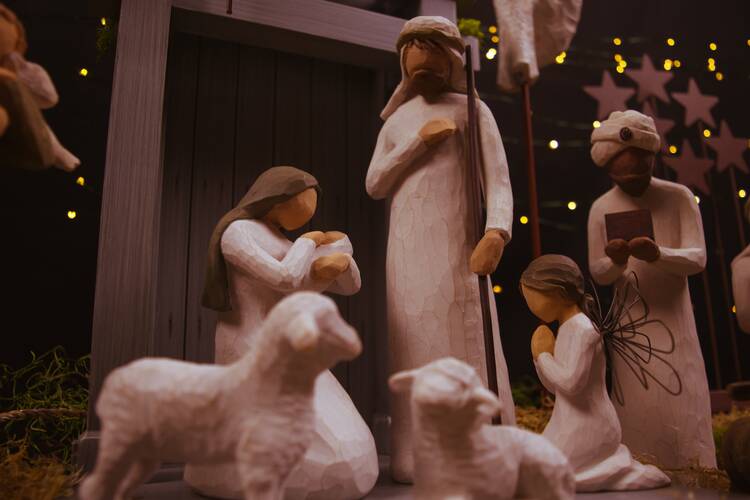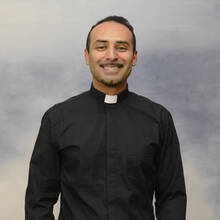The right disposition for the Christmas season
On the threshold of Christmas wonder, the readings of the Fourth Sunday of Advent encourage us to reflect on God’s messages to King David, the young Mary and the priest Zechariah, and also to consider the dispositions of their hearts. Their responses to their encounters with God guide us as we prepare to commemorate one of the deepest mysteries of our faith.
Mary said, “Behold, I am the handmaid of the Lord. May it be done to me according to your word.” Then the angel departed from her. (Lk 1:38)
Are you ready to welcome the mystery of the incarnation?
What struggles prevent you from experiencing the joy of this season?
How is God the main builder of your community right now?
This Sunday’s first reading makes a comparison between King David and the God of Israel. The King has a brilliant idea: “Here I am living in a house of cedar, while the ark of God dwells in a tent!” (2 Sm 7:2). At first, the royal prophet Nathan encourages David’s impulse to build God a house, but heaven rebukes them both: “Is it you,” says the Lord, “who would build me a house to dwell in?” (2 Sm 7:5). In Scripture, David is said to be a “man after God’s own heart,” but even Israel’s king needs to discern the disposition of his own heart and recognize who is king and who is servant. King David is humbled by Israel’s true king.
Mary provides the key disposition for this season. She allows the mystery of Emmanuel to unfold as it will in her life, without conditions.
Two more significant comparisons appear in this Sunday’s Gospel. Luke the evangelist relates an annunciation scene in which God’s messenger Gabriel brings “glad tidings” to a youthful girl. Juxtaposed with this Sunday’s first reading, one can immediately see the massive responsibility that a divine message carries. Nathan and Gabriel both bear life-changing tidings. David hopes to build a suitable dwelling place for God; Mary becomes the mother of a child, “called holy, the Son of God” (Lk 1:35). David is humbled by his presumption of greatness, whereas Mary’s humble “yes,” brings her the “favor” of becoming the chosen “ark” of God’s son.
The other comparison in this Sunday’s Gospel merits more attention as we prepare for the mystery of the incarnation. Luke places Mary’s annunciation scene just after the annunciation of the birth of John the Baptist to Zechariah the priest, the husband of Mary’s kinswoman Elizabeth. Zechariah hesitates to believe Gabriel, and becomes deaf and mute until his son is born. His hesitancy to embrace the unfolding mystery reveals his inner disposition. As a priest, one might have expected him to recognize the divine ability to accomplish wonders. Mary, by contrast, provides the key disposition for this season. She allows the mystery of Emmanuel to unfold as it will in her life, without conditions. “May it be done to me according to your word,” says the mother of the holy child (Lk 1:38), teaching generations how to respond to God’s wondrous mystery.








